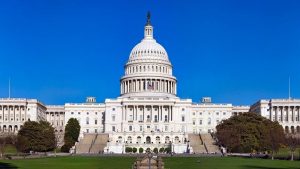A recent survey on the State of Ransomware found that ransomware attacks are rising in both frequency and complexity, with 72 percent of the survey’s respondents saying that they have experienced an uptick in the volume, complexity, or severity of cyberattacks.
Ohio Governor Mike DeWine appointed Kirk Herath as the state’s cybersecurity strategic advisor, a new position created within DeWine’s administration.
The Federal Bureau of Investigation (FBI) has released a private industry notification (PIN) warning local governments and government services that ransomware will likely “strain” their capabilities if not prevented.
With state and local governments (SLGs) becoming more tempting targets for cyberattacks every day, Federal and SLG experts are increasingly urging the importance of communication between the public and private sector in order to achieve a unified and stronger American cybersecurity posture.
Code for America received two separate investments, totaling $100 million over seven years, to set up its Safety Net Innovation Lab and work with state and local government agencies to modernize their social safety net administration services to make access to government services more equitable, the nonprofit announced April 12.
The Senate adopted the House-passed version of the National Cybersecurity Preparedness Consortium (NCPC) Act by unanimous consent, sending the bill to the President’s desk for his signature.
The COVID-19 pandemic has led to a lot of changes – from public health to remote work – but investing in technology upgrades to improve citizen services and cybersecurity could lead to the most lasting impact on state and local governments (SLGs), according to several state IT officials who spoke at MeriTalk’s State Tech Vision virtual event on March 29.
Maryland Gov. Larry Hogan has submitted a $101.25 million supplemental budget to the General Assembly to expand the state’s cyber readiness and workforce initiative.
North Carolina Gov. Roy Cooper has signed an executive order (EO) establishing the State of North Carolina Joint Cybersecurity Task Force.
New Mexico Gov. Michelle Lujan Grisham has appointed Annie Winterfield Manriquez to a new role in state government – senior advisor for cybersecurity and critical infrastructure.













